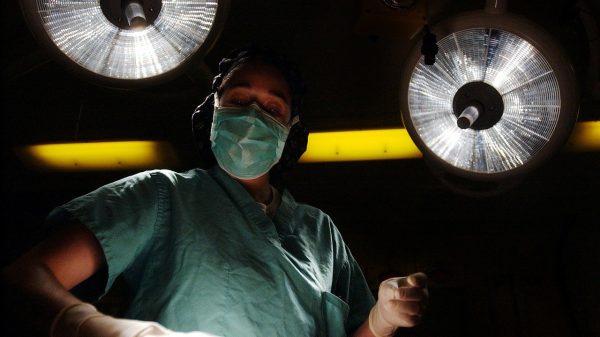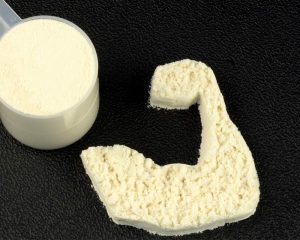Can cirrhosis of the liver be cured? No, it cannot. There is no way to cure cirrhosis. But then, there are ways to treat it. Doctors usually approach the treatment of cirrhosis with 2 main goals in mind. The first is to prevent your liver from damaging further. The second goal is to manage all the symptoms and prevent any form of complications. To prevent further damage, the doctor will work with you to address whatever is damaging your liver. Some of the leading causes of liver damage include alcohol abuse, and fatty liver, among many others. That’s why there is no general approach to treating cirrhosis. Your treatment will be personalized based on the root cause of your cirrhosis, as well as the extent of your liver damage.
Let’s back up a little. What does liver cirrhosis mean? If the doctor diagnoses you of cirrhosis, what it means is that there is a condition in your body causing scar tissues to replace the healthy cells of your liver. This damage takes time to occur. It happens over an extended period, usually due to alcohol addiction and infection. Most times, there is no way to fix this liver damage. But then, if you are able to catch the damage early on, you can treat it and keep things in check. But if you don’t, the damage will progress and cause lethal complications, including cirrhosis, liver failure, and even death.
Can Cirrhosis of the Liver Be Cured?
While there is no ultimate cure for cirrhosis, you can treat the underlying root cause. This will help minimize the damage so long as treatment starts in the stage of early cirrhosis.
These are the available options for managing cirrhosis:
1. Treating alcohol dependence
If your cirrhosis is as a result of excessive alcohol, you would have to quit drinking. And if you find it difficult to stop, your doctor may suggest one or two treatment programs to handle alcohol addiction.
You can’t but quit drinking if you have liver cirrhosis. This is a very critical step in treating cirrhosis. Even just a little alcohol would be toxic to your liver. Alcohol overworks your liver because it creates lots of toxins for your liver to clear out.
So then, quitting alcohol is one of the major steps in protecting your liver. This becomes even more important if you have formed the habit of heavy drinking or you are dependent.
Talk to your physician about different options on how you can quit drinking. This may include a support program, one-on-one counseling, support groups, in-patient rehab, or prescription medicines.
2. Losing weight
Sometimes, cirrhosis may not be related to alcohol intake in any way. Such occurs as a result of nonalcoholic fatty liver. This can be caused by poor, unhealthy eating. It is more common in overweight individuals. As such, losing excess weight and controlling your blood glucose levels can help.
3. Medications for hepatitis
Your doctor may give you certain medications to halt further liver damage if you have hepatitis (HBV or HCV). This would help treat viral infection and stem liver damage. Treatment options for hepatitis include antiviral drugs and interferons.
Antiviral drugs, as the name suggests attack the virus. There are specific drugs for each type of hepatitis. However, these drugs may have some side effects. These include headache, weakness, sleep problems, and nausea.
Interferons, on the other hand, boost your immunity to fight the virus. Some of the side effects of interferons may include breathing problems, dizziness, depression, and weight changes. You can only use interferons for hepatitis B. Hepatitis C is curable with antiviral drugs.
Aside from these options, some other medications may help control some other cirrhosis symptoms and causes. The medications will slow down the progression.
Some other medications are potent for relieving certain symptoms. These symptoms include fatigue, itching, and pain. You can also take nutritional supplements to help counter malnutrition.
How to Treat Cirrhosis Complications
Cirrhosis causes serious damage. This prevents your liver cells from doing their jobs. They won’t be able to clear out toxins and help you digest your foods. Some of the problems include the following:
Portal hypertension
The scars in your liver can obstruct blood flow via your portal vein. The portal vein is the major vessel that supplies blood to your liver. Once there is obstruction of blood flow, blood backs up and that increases pressure in your portal vein.
You can use high BP (blood pressure) medications called beta-blockers to lower the pressure. If not, the pool of blood may make the vessels swell until they eventually burst and cause serious problems.
Varices
When your blood vessels well up due to blood pooling, they are called varices. These varices often appear in the stomach and esophagus. The risk with varices is that they can eventually overstretch and break open. This will cause internal bleeding.
Your doctor may tie some sort of special band around varicose veins to stop them from bleeding. The name for this procedure is band ligation. Sometimes, doctors suggest a surgical intervention (TIPS) to redirect (or shunt) the flow of blood.
Fluid accumulation
As the pressure in your portal vein increases, it will affect your liver function. These can lead to the buildup of fluid within your belly. Doctors call this ascites. To treat ascites, your doctor may prescribe diuretics to assist your body in removing the excess fluid.
You may also need to use antibiotics. This would prevent the growth of bacteria in the ascitic fluid. If this happens, the infection could be lethal. Sometimes, doctors may suggest the drainage or removal of ascitic fluid to relieve portal hypertension.
Hepatic encephalopathy
When your liver is scarred, it won’t be able to clear toxins out of your body. When these toxins accumulate in your body, they will cross over from your blood into your brain and cause brain damage.
Symptoms of hepatic encephalopathy include trouble thinking and memory loss. You can, however, prevent this cirrhosis complication by taking medicines that help clear toxins from your blood.
Cancer of the liver
Cirrhosis can increase your risk of developing liver cancer. If you have liver cirrhosis, you should do regular screenings for cancer once or twice every year. If liver cancer develops, your treatment options will include surgery, chemotherapy, or radiation.
How About Liver Transplant?
Cirrhosis can cause enough damage to your liver for it not to work again. Doctors call this liver failure. The only way out when this happens is to get a liver transplant. This means that a surgeon will replace the damaged liver with a healthy donor liver.
Can cirrhosis of the liver be cured? No, it can’t. But you can treat and manage it. Anyways, exerts are still working hard to develop more treatment options for cirrhosis. Hopefully, we can have better options in the nearest future.























